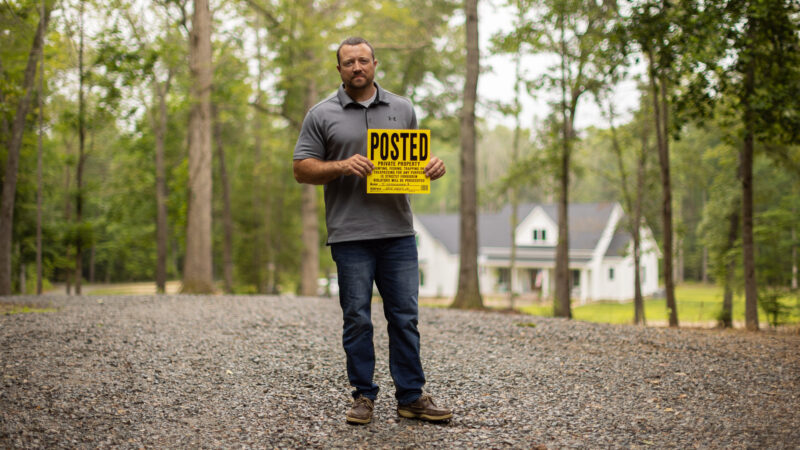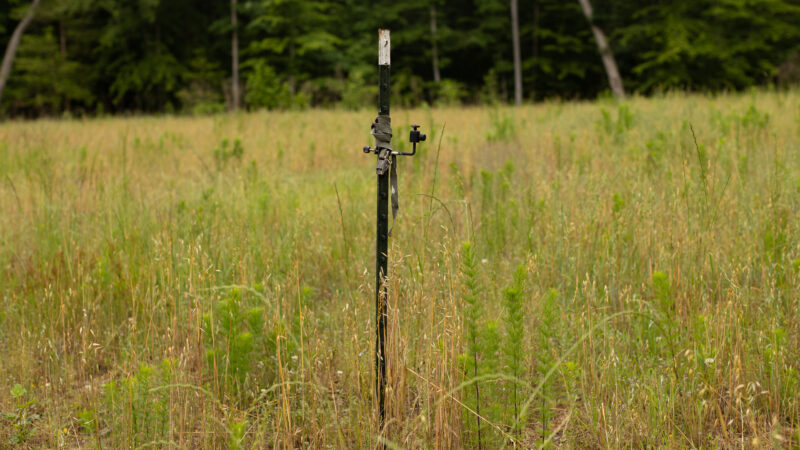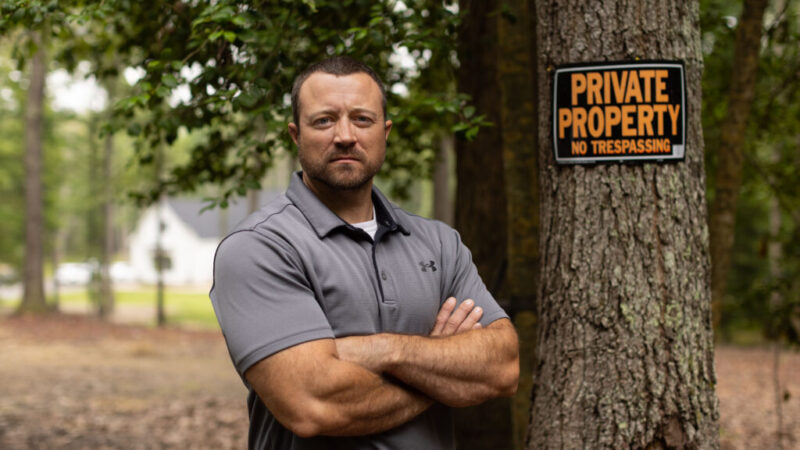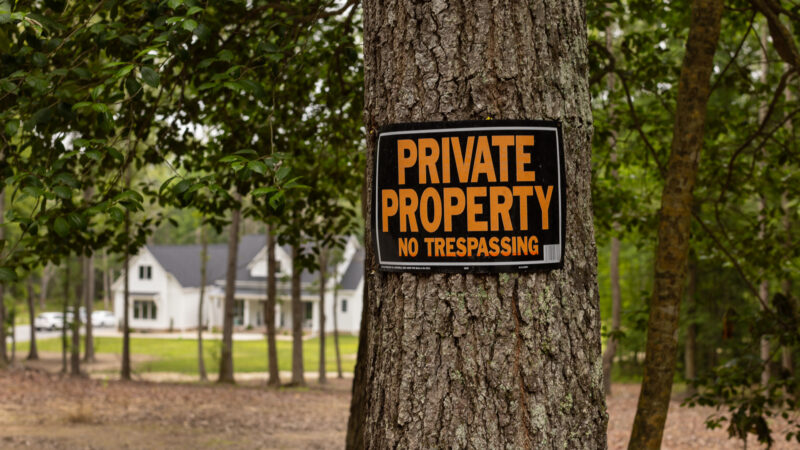There’s been a number of stories lately of over-zealous game wardens crossing the line for the sake of protecting fish and game. It wasn’t too long ago that we reported on one hunter that had his buck mounts stolen by game wardens over some far-fetched, false accusations that ultimately didn’t go in the offending officers favor.
However, the latest news of officers overstepping their bounds comes out of Virginia where a landowner recently sued a game warden for stealing a trail camera off his own property.

The Institute for Justice (IJ) has been on a mission in recent years helping hunters, landowners, homeowners, and many others defend their freedom.
Their press release below shares the details of how a game warden stole a trail camera from Josh Highander’s property this spring and what took place in the days following.
What Happened?
There’s been a lot of controversy in recent years over whether or not state game wardens should have the right to trespass on a private landowner without first presenting a warrant. Regardless, that’s only one of the issues Virginia resident, Josh Highlander, took up with a local game warden. Not only did the warden come on to his property, but the officer stole a trail camera from Highlander’s food plot, located a short distance from his home.
Highlander is now teamed up with the Institute for Justice to sue the Virginia Department of Wildlife Resources for invading and taking his property.
Before diving further in to the IJ’s release on this case, you can read the official complaint HERE.

The IJ release states that Josh Highlander became aware of DWR’s intrusion onto his property in an alarming way. On April 8, the first day of turkey season in Virginia, Josh’s wife and young son were playing outside when their basketball rolled toward the woods. When Josh’s wife went to retrieve it, she saw a figure in heavy camouflage in their woods. She ushered her son back into the house and alerted Josh, who came outside but couldn’t locate the stranger.

Later that day, Josh discovered that the game camera had gone missing. Josh’s camera had been on the part of his 30 acres where he grows a “food plot.” Food plots grown to attract game are legal in Virginia—DWR encourages them on its website and, weeks earlier, Josh’s family fertilized his food plot and planted millet seed.
How Josh’s camera went missing soon became clear. Josh learned that his brother, Rob Jr., had been cited for a hunting violation earlier in the day and that his father, Rob Sr., had been approached by wardens but not cited. And Rob Jr. had seen DWR officials parked in a cul-de-sac near Josh’s home on that same day, likely after they searched the property and took the camera.
While most Americans would think law enforcement needs a warrant to conduct surveillance on private land, the U.S. Supreme Court held nearly a century ago that the Fourth Amendment does not apply to “open fields.” But whether law enforcement can take a camera or other property without a warrant while searching an open field is legally questionable.

This misguided open fields doctrine ignores a fundamental point of the Fourth Amendment: to ensure that Americans are secure on their properties. But Article I, Section 10 of the Virginia Constitution expressly prohibits unconstrained searches of “places,” a term that includes private land. But that constitutional guarantee is only as good as the courts willing to enforce it. Josh and IJ have brought this suit to ensure that Virginians receive meaningful constitutional protection in their land and the property on it.
“No trespassing signs also need to apply to the government,” said IJ Attorney Joe Gay. “If ordinary people can’t sneak onto your land and steal your property, then government agents shouldn’t be able to do that either without a warrant.”
This case is part of IJ’s Project on the Fourth Amendment, which seeks to protect the right for Americans to be secure from unreasonable searches and seizures. In Tennessee, a state court ordered the Wildlife Resources Agency to stop warrantless trespasses and placement of cameras after IJ sued on behalf of two property owners. IJ is also representing two hunting clubs in Pennsylvania that have been subject to warrantless searches.
What are your thoughts on this case? Comment below, and let us know if you agree or disagree with the rights of state wildlife agencies on private property.

 By
By 



